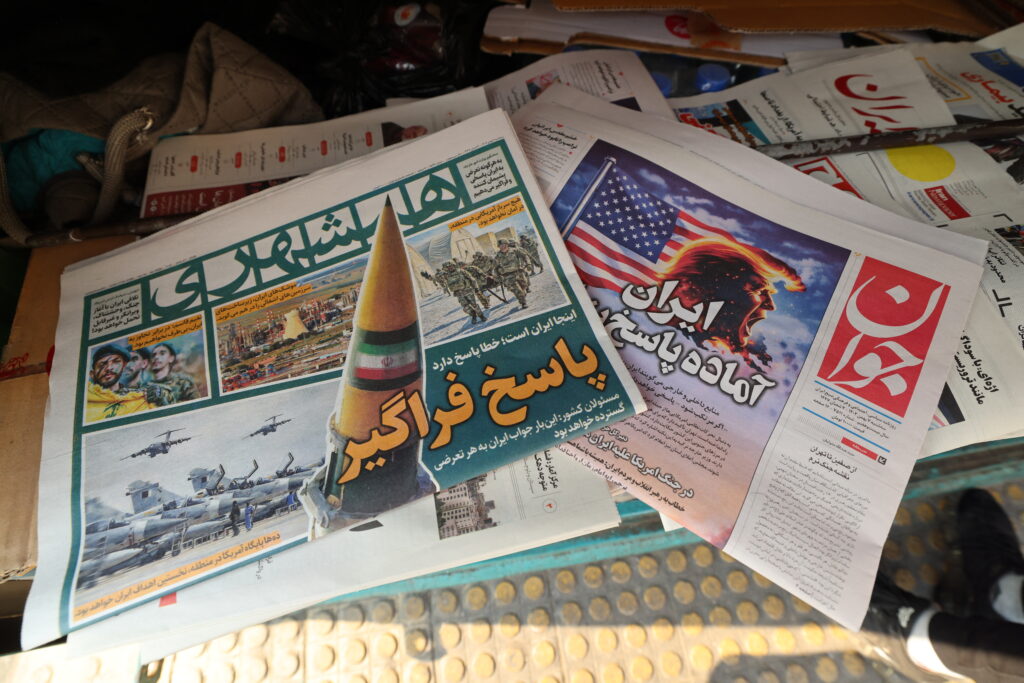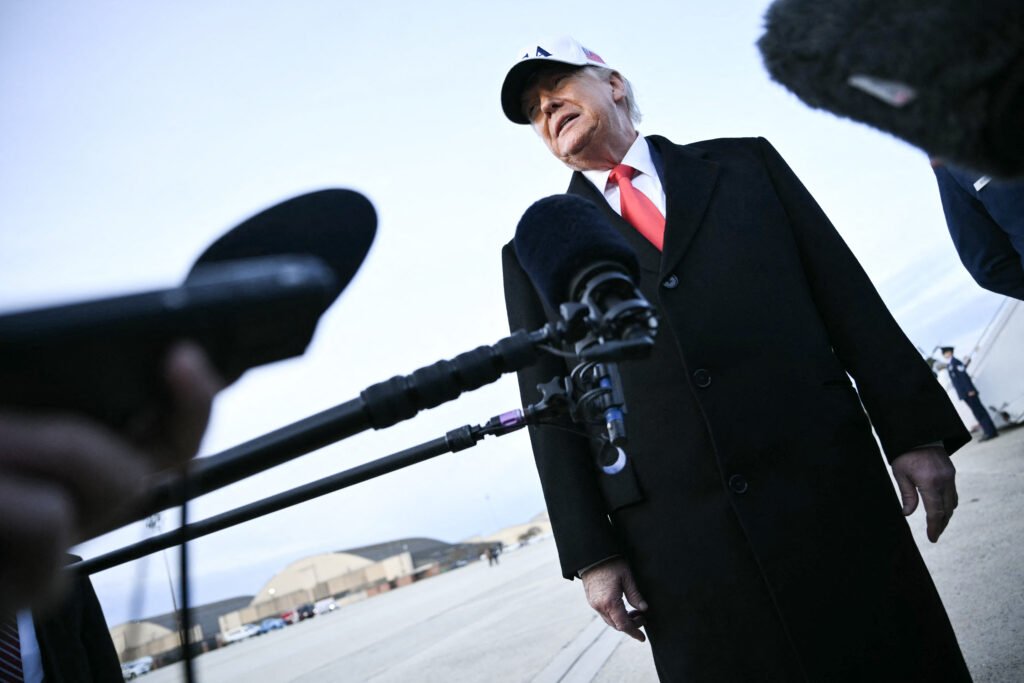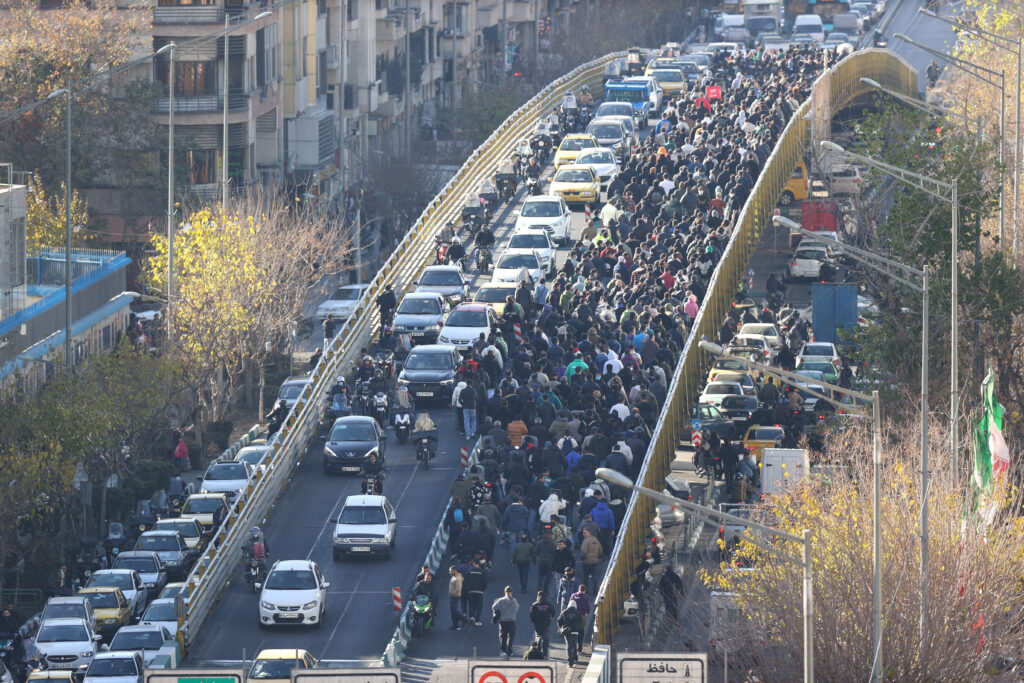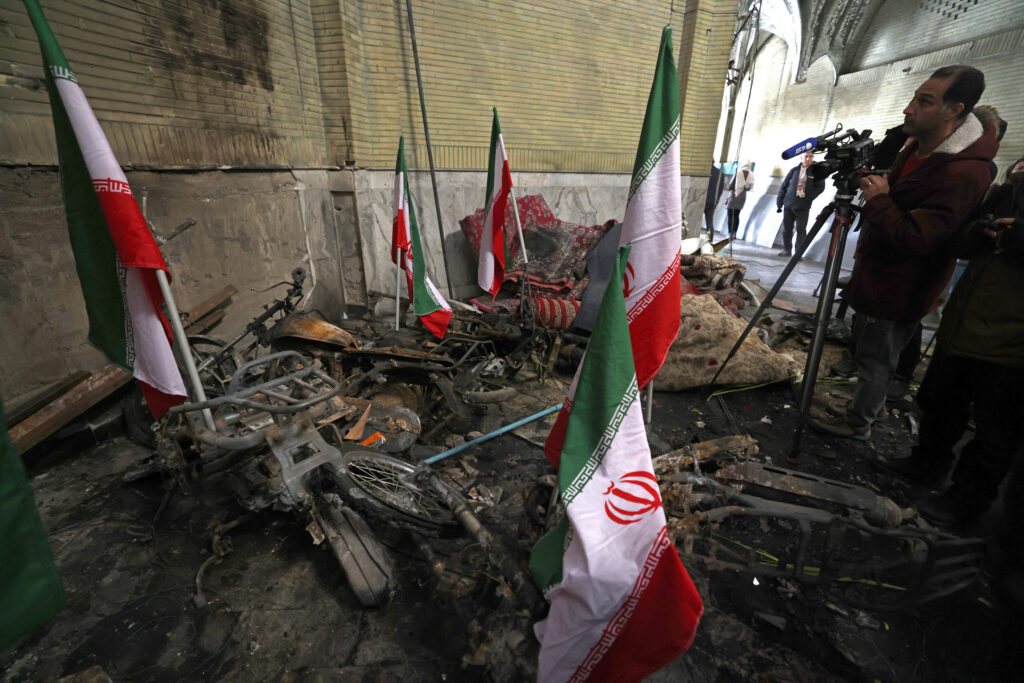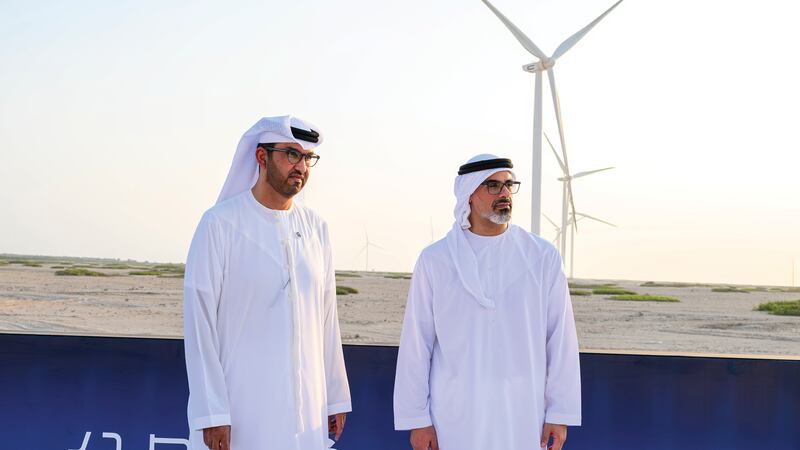UAE’s Sports Diplomacy Push Takes Different Tack from GCC Pack
- -
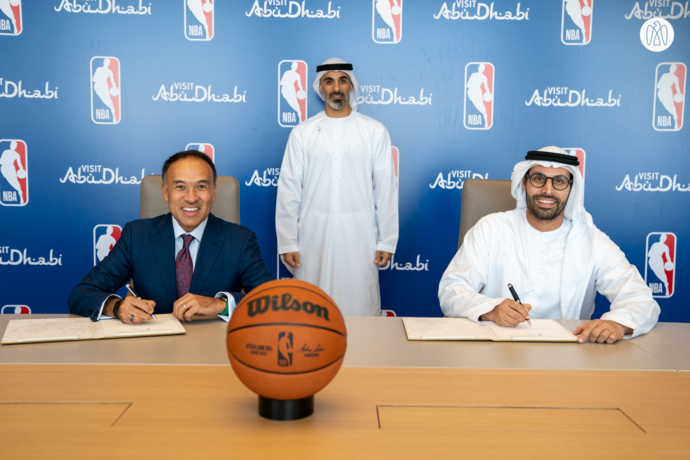
*By Kristian Alexander and Rahaf Al Khazraji
The United Arab Emirates (UAE) has established itself as a global hub for sports and hosted several high-profile sports events, including the Dubai World Cup, Abu Dhabi Grand Prix, and Dubai Rugby Sevens. While these events have helped to boost the country’s tourism industry and raise its international profile, they have also been an effective tool in sports diplomacy, which has become an increasingly important aspect of the UAE’s foreign policy.
Whereas traditional diplomacy involves government actors and diplomats negotiating treaties and agreements, sports diplomacy involves teams, athletes, fans, sponsors, individual/foreign owners and brand names who come together to shape and celebrate athletic endeavour. Governments use sports diplomacy to communicate and engage with foreign audiences to promote their country’s values and interests[1]. The most prominent examples of sports diplomacy are large international events, such as the Olympic Games and the World Cup, but smaller competitions can also be effective avenues.
Faster, Higher, Stronger: The Original Soft Power
The use of sports diplomacy dates back to the ancient Olympic Games, which were held in Greece to promote peace and unity among the participating city-states. One of the most prominent examples of sports diplomacy in recent years was the 2018 Winter Olympics in Pyeongchang, South Korea, where North and South Korean athletes marched under a unified flag during the opening ceremony, signalling a potential thaw in relations between the two countries[2] — a hope that eventually proved short-lived. More recently, the 2022 World Cup in Qatar served as a platform for international leaders to meet and engage in dialogue. Athletic events can be a good opportunity for such informal meetings among political leaders, especially for multilateral discussions, and can be used as an outreach to the international community or to strengthen relations between specific countries.
Sports events can also provide insights into the host’s infrastructure, attractions, and culture, thus benefitting the country in many ways, including encouraging tourism and foreign investment. They can also create a legacy for the host country by improving its image and showcasing its institutional and organisational strengths.
While sports diplomacy can facilitate positive outcomes, it alone cannot guarantee lasting and substantive diplomatic progress. It serves as a complementary tool in a broader diplomatic strategy. The impact of sports diplomacy initiatives may not be long lasting, and its benefits may fade over time. The 1972 Summer Olympics in Munich were a prime example of a mega-sports event that failed to deliver the intended positive diplomatic outcomes. The Games were intended to promote international cooperation and showcase Germany’s post-war reconstruction and democracy. However, they were totally overshadowed by an attack by a Palestinian terrorist group that resulted in the deaths of 11 Israeli athletes and coaches[3]. The incident shocked the world and highlighted the ongoing conflict in the Middle East, undermining the event’s diplomatic goals.
Sports diplomacy initiatives can be expensive and logistically challenging to organise, particularly in countries that lack the necessary resources or infrastructure. Furthermore, the commercialisation of sports can undermine the positive effects of sports diplomacy by prioritising corporate interests over public diplomacy objectives. Many Olympic sports sites, for example, end up under-utilised, abandoned, or re-purposed for other uses after the games are over. The cost of maintaining and operating these facilities often outweighs their benefits, especially if they were built for a specific event or purpose and do not have a long-term use. The baseball stadium constructed for the 2004 Olympics in Athens, Greece, for example, stood in ruins only 10 years later[4], though it was rebuilt to house Syrian refugees in 2018.
Sports as a Showcase for the GCC
Sports diplomacy can be considered as an arm of soft power, which refers to the ability of a country to influence others through non-coercive means, such as culture, values, and policies. It utilises sports as a platform to foster international relations, promote cultural understanding, and enhance a country’s image on the global stage. By leveraging sports, nations can engage in people-to-people exchanges, build relationships, and create positive perceptions of their country and its values. The Gulf Cooperation Council (GCC) countries have recognised the potential of sports and culture as key components of their soft power strategies. They have made substantial investments in hosting and supporting major international sporting events, building state-of-the-art sports infrastructure, and promoting their cultural heritage.[5]
These countries share a passion for sports and are strategically located at the crossroads of Europe, Asia, and Africa, so sports diplomacy has been a natural fit for their governments’ foreign policy toolkit. The 2022 World Cup in Qatar, for example, was an opportunity for Doha to showcase its capabilities and improve its international reputation.
The UAE has not hosted an event as high profile as the World Cup, but it has emerged as a major player in sports diplomacy. The country’s approach has been to diversify beyond traditional sports, such as football and cricket, into more niche ones, such as golf, horse racing, and motorsports. This has enabled it to tap into specific markets and audiences and demonstrate its ability to host a range of sporting events. These events attract tourists, generate revenue from ticket sales, boost hospitality and tourism sectors, and provide opportunities for local businesses. The UAE recognises the positive impact of hosting such events, and actively seeks to attract them as part of its broader economic diversification strategy.
According to Simon Chadwick, Professor of Sport and Geopolitical Economy at the Skema Business School in Paris, “Sport is seductive, and therefore constitutes a very efficient way of targeting relevant audiences”. He believes that “Dubai’s approach involves a game of attraction, designed to attract visitors and airline transit passengers to the country – one need only think about Emirates’ football shirt sponsorship programme to illustrate this […] In this case, sports diplomacy appears to be more a matter of robust representation, Manchester City Football Club being a prime example”.[6]
Sebastian Sons, a senior researcher at the Centre for Applied Research in Partnership with the Orient (Carpo), a consultancy based in Germany, asserts that, “as the first GCC country to acquire a football club in 2008 and invest in the success of Manchester City, the UAE served as a role model for other countries, like Qatar (with PSG) and Saudi Arabia (with Newcastle United). This long-term strategy emphasises that success takes time and dedication.”[7]
As Dr Seth Perkin, a lecturer at Manchester Metropolitan University and author of the upcoming book “Big Games: Small State Politics and Global Sport” (Palgrave, 2024), asserted, “…the UAE differs from its regional counterparts in how it has cultivated its investment in sport. Rather than the more ‘aggressive’ forms of investment shown by Qatar in bidding and hosting the Fifa World Cup in 2022, and Saudi Arabia’s Public Investment Fund ownership of Newcastle United FC and the creation of LIV Golf, the UAE has favoured a ‘slower’ approach in building its sporting portfolio. It is here that we must recognise the length of the soft power strategies that have been implemented by the UAE. The UAE has faced less international criticism than its regional counterparts due to sport complementing existing infrastructure around culture and tourism. In particular, with Dubai recognising the importance of tourism for its economic growth in the 1980s, its utilisation of sport sponsorship from the early 2000s supported what was becoming an established tourist destination. When Manchester City was taken over by the Abu Dhabi United Group in 2008, the UAE was a familiar name to all football fans in the UK due to the presence of the Emirates Group sponsorship of Arsenal and, therefore, was not seen as a threat to the status quo as we have seen with Qatar’s hosting of the World Cup and the involvement of Saudi Arabia with Newcastle.”[8]
During the coronavirus pandemic, Abu Dhabi hosted the mixed martial arts Ultimate Fighting Championship’s “Fight Island” series on Yas Island[9]. At a time when almost all international sporting events were cancelled or postponed, Abu Dhabi coordinated these events, which were then broadcast to a global audience, for many of whom Fight Island was an introduction to the region.
The UAE considers sports as a crucial element of its national agenda and enshrined its commitment to sports in its Vision 2021 economic transformation plan, which emphasises the development of a world-class sports sector and aims to establish the country as a global hub for sports. Significant investment in world-class stadiums and facilities has enabled the UAE to establish itself as a hub for sports tourism in the region. The Yas Marina Circuit is the most-expensive Formula 1 track in the world, costing the Emirates approximately US$1.3 billion to build in 2008[10]. The UAE has also invested in sports academies and training facilities to develop its own athletes and teams, particularly in football.
It has also leveraged its global influence and financial resources to attract high-profile sports celebrities and teams to the country[11]. This includes partnerships with superstars such as tennis legend Roger Federer[12]. Increasingly, the UAE has tried to compete with traditional winter training destinations, with local companies providing exclusive travel and accommodation packages for teams and individual athletes.
The UAE’s warm weather and excellent sporting facilities have proven popular not just with English Premier League giants Manchester United and Liverpool, but also with European sides such as Italy’s AC Milan and German side Borussia Dortmund, which have opted for Dubai as a training camp location during the European winter break[13].
Carpo’s Dr Sons goes on to argue that the UAE utilises “sports for development” as a component of its public diplomacy strategy, and as a means to facilitate and enhance humanitarian efforts.
The country has established initiatives like the Mohammed bin Rashid Al Maktoum Global Initiatives, which include sports-related programmes to address social challenges. For example, the UAE has undertaken projects to provide sports facilities, coaching, and equipment to disadvantaged communities and refugees. These initiatives aim to promote inclusivity, empowerment, social integration, and physical well-being through sports.[14]
The UAE has also leveraged sports events and partnerships to raise funds and awareness for international aid and relief efforts. For instance, the country has organised charity sports events and auctions where proceeds go towards supporting humanitarian causes. The UAE’s sports associations and clubs often collaborate with international organisations to provide assistance, raise funds, and generate awareness for various humanitarian crises and projects.
An equally important part of the UAE’s sports diplomacy strategy has been the promotion of gender equality in sports. Initiatives such as the UAE Women’s Football League, Abu Dhabi Women’s Run, and Dubai Women’s Cycling Tour have helped to create new opportunities for women in sports and challenge gender stereotypes in the region[15]. The UAE women’s national ice hockey team visited Washington, DC in February 2018 and were guests of honor at a Washington Capitals game. The event was coordinated by the UAE Embassy in conjunction with the National Hockey League’s “Hockey is for Everyone Month” to celebrate the game’s growing popularity around the world[16].
The Brazilian Example
In 2008, Mohammed bin Zayed al-Nahyan, then Abu Dhabi’s Crown Prince and de facto ruler of the UAE, designated jiu-jitsu as the country’s national sport. By 2016, 130 schools were teaching the martial art, with over 76,000 students enrolled. Jiu-jitsu now has significant cultural importance in the UAE, and is an example of its unique approach to sports diplomacy[17].
The UAE Jiu-Jitsu Federation raises awareness for the sport and aims to make the country the premier venue for it. The governing body launched the Abu Dhabi Grand Slam Jiu-Jitsu Tour, the sport’s most well-known tournament, in 2015, and a community of some of the world’s best grapplers train and compete in the UAE. The country’s National Security Adviser, Tahnoun bin Zayed al-Nahyan, funds many of these initiatives, and is an active practitioner who holds a black belt in the sport[18].
The relationship between the UAE and Brazil is an example of how sports can enhance a bilateral relationship. Both countries have ties that date back several decades — Brazil was one of the first countries to establish an embassy in Abu Dhabi in 1978 — and also have strong strategic and economic interests, with the UAE being one of Brazil’s major trading partners in the Middle East. Over the years, agreements have been signed between the two countries covering various areas, including agribusiness, global security, artificial intelligence, energy, environment, defence, tourism, and customs co-operation.[19] Jiu-jitsu has enhanced this relationship, as evidenced by the warm reception Brazilian President Luis Inácio Lula da Silva received when he visited Abu Dhabi on April 15.
The connection between the UAE and Brazil through jiu-jitsu has fostered a unique bond between the two countries. Brazil has a rich heritage in the sport, and many instructors and practitioners from the country have been involved in its growth of in the Emirates. The UAE Jiu-Jitsu Federation (UAEJJF) has actively collaborated with its Brazilian counterpart, academies, and practitioners to share knowledge, organise competitions, and facilitate exchanges.
This shared passion has created opportunities for cultural exchange, sports diplomacy, and increased bilateral cooperation. Brazilian jiu-jitsu practitioners and instructors have found a welcoming and supportive environment in the UAE, while the UAE has gained recognition as a global hub for the sport.[20]
Conclusion
The UAE’s sports diplomacy holds great potential as the country continues to establish itself as a global sports hub and leverage the power of sports for diplomatic purposes. Its strategic investments in sporting events, infrastructure, and partnerships have elevated its international standing, and attracted the attention of athletes, teams, and organisations from around the world.
This strategy may encounter potential challenges, however. One is the need for sustained investment and development in grassroots sports programmes to nurture local talent and build a sustainable sports ecosystem. Balancing the pursuit of sporting excellence while upholding the principles of fair play, inclusivity, and transparency will be crucial for the UAE’s continued success in sports diplomacy[21].
As other countries in the GCC also venture into hosting major sports events, the UAE faces challenges in maintaining its competitive edge. Another key challenge is the increasing competition for hosting rights, as neighbouring countries such as Qatar and Saudi Arabia have also successfully secured major international sporting events. This intensifies the competition for investments, sponsorship deals, and media attention, creating a crowded landscape that the UAE must navigate strategically.
Lastly, the accusation of “sport-washing” has had a negative impact on the hosting of sports events in the Gulf. Critics argue that these events are being used to divert attention from human rights issues, lack of political freedoms, or labour rights abuses. The accusation may undermine the credibility and legitimacy of the host countries, raising concerns about the transparency and fairness of the bidding process and the treatment of migrant workers involved in event preparations. Such charges can give rise to international scrutiny, boycott calls, or protests, tarnishing the reputation of the host countries while raising questions about the ethical considerations surrounding the hosting of these events.[22]
Despite these challenges, the UAE’s commitment to a sports diplomacy programme that differentiates itself from its Gulf neighbours positions it as a significant player in the global sports landscape, capable of fostering cross-cultural exchanges, promoting unity, and shaping a positive international image.
Image Caption: His Highness Sheikh Khaled bin Mohamed bin Zayed(back), member of Abu Dhabi Executive Council and Chairman of the Abu Dhabi Executive Office, witnesses the signing of multi-year partnership agreement between Department of Culture and Tourism – Abu Dhabi and National Basketball Association.
*Dr Kristian Alexander is a Senior Fellow and Director of the International Security & Terrorism Program at TRENDS Research & Advisory, Dubai
*Rahaf Al Khazraji is an Emirati Researcher at Trends Research & Advisory in Abu Dhabi.
End Notes
[1] Stuart Murray & Geoffrey Allen Pigman (2014) ‘Mapping the relationship between international sport and diplomacy’, Sport in Society, 17:9, 1098-1118, DOI: 10.1080/17430437.2013.856616
[2] Zeeshan Aleem (2018) ‘North and South Korea marched together under one flag at the Olympics’, Vox, https://www.vox.com/world/2018/1/17/16900972/winter-olympics-opening-ceremony-north-south-korea-flag
[3] James Doubek (2022) ’50 years ago, the Munich Olympics massacre changed how we think about terrorism’, NPR, September 4, 2022, https://www.npr.org/2022/09/04/1116641214/munich-olympics-massacre-hostage-terrorism-israel-germany
[4] Evangelia Kasimati (2015) ‘Post-Olympic Use of the Olympic Venues: The Case of Greece’, Athens Journal of Sports, Vol. 2, Issue 3, pp. 167-184, https://www.athensjournals.gr/sports/2015-2-3-3-Kasimati.pdf
[5] Cinzia Bianco & Sebastian Sons (2023) ‘More than a Game: Football and Soft Power in the Gulf’, The International Spectator, 58:2, 92 106, DOI: 10.1080/03932729.2023.2196810
[6] Interview with Professor Simon Chadwick on May 27, 2023
[7] Interview with Dr Sebastian Sons on May 31, 2023
[8] Interview with Dr Seth Perkin on June 2, 2023
[9] UFC Fight Island-Everything you need to know (September 17, 2020),
[10]https://www.ufc.com/news/ufc-fight-island-where-ufc-fight-island-fight-island-schedule-and-more
[11] F1Experiences (2020) ‘Yas Marina: The most expensive F1 circuit ever built’, https://f1experiences.com/blog/yas-marina-circuit-most-expensive-f1-circuit-ever-built
[12] Deloitte (2015) ‘Economic Impact of Sport in Dubai’, https://www2.deloitte.com/content/dam/Deloitte/uk/Documents/sports-business-group/deloitte-uk-sbg-dubai-falcon-report.pdf
[13] Kieron Monks (2019) ‘Why Paul Pogba, Cristiano Ronaldo and Mo Salah have all trained in Dubai’, CNN, August 22, 2019, https://edition.cnn.com/2019/08/22/sport/dubai-elite-sports-center/index.html
[14] Anisha Sagar (2023) ‘’The rise of sport in the Gulf states’, Arabian Business, https://www.arabianbusiness.com/opinion/the-rise-of-sport-in-the-gulf-states
[15] Interview with Dr Sebastian Sons on May 31, 2023
[16] Arab News (2023) ‘Leaders’ vision for empowerment of women has made UAE a leader in gender balance, expert says’, January 25, 2023, https://www.arabnews.com/node/2239006/middle-east
[17] Sophie Tremblay (2018) ‘UAE women’s national ice hockey team leave lasting impression during US tour’, The National, https://www.thenationalnews.com/uae/uae-women-s-national-ice-hockey-team-leave-lasting-impression-during-us-tour-1.703577
[18] Jean Carlo Benetti Bueno, Leonardo Vidal Andreato, Rodrigo Batalha Silva & Alexandro Andrade (2022) ‘Effects of a school-based Brazilian jiu-jitsu programme on mental health and classroom behaviour of children from Abu Dhabi: a randomised trial’, International Journal of Sport and Exercise Psychology, DOI: 10.1080/1612197X.2022.2109184
[19] Mohammed Al Housani (March 6, 2012) ‘Royal vision that led to growth of Brazilian jiu-jitsu in Abu Dhabi’, The National, https://www.thenationalnews.com/sport/royal-vision-that-led-to-growth-of-brazilian-jiu-jitsu-in-abu-dhabi-1.391497
[20] The National “UAE and Brazil have deep historic ties”, 27 October, 2019, https://www.thenationalnews.com/opinion/editorial/uae-and-brazil-have-deep-historic-ties-1.930020
[21] Sam Blum (29 August, 2015) ‘UFC to UAE: how an Abu Dhabi sheikh made Brazilian jiu-jitsu a national sport’ The Guardian, https://www.theguardian.com/sport/2015/aug/29/ufc-to-uae-how-an-abu-dhabi-sheikh-made-brazilian-jiu-jitsu-a-national-sport
[22] Amnah Mosley (2022) ‘Sports Diplomacy in the GCC’, Gulf Research Center (GRC), https://grc.net/documents/62c43cb9a4cfeSportsDiplomacyintheGCC.pdf
[23] Michael Skey (2022) ‘Sportswashing: Media headline or analytical concept?’, International Review for the Sociology of Sports, pp.1-16, https://journals.sagepub.com/doi/pdf/10.1177/10126902221136086

